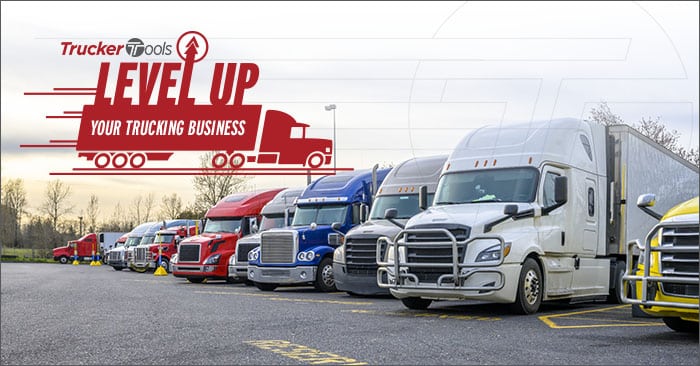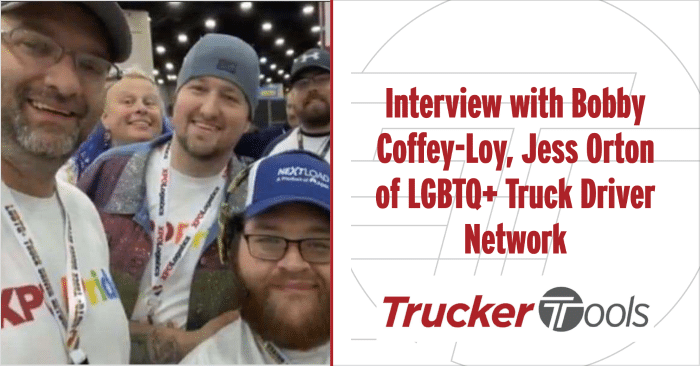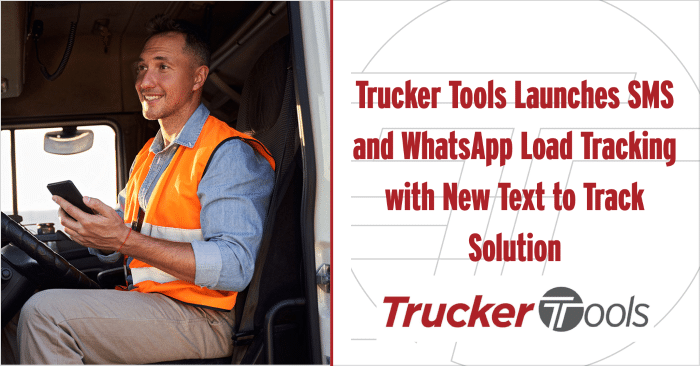In this blog series, Level Up Your Trucking Business, you get real-world advice and tips for building a strong, self-sustaining and profitable trucking business. With so many company drivers transitioning to owner operators over the last year, we thought it was a great time to talk about how to build an owner operator or small carrier business with a new MC number.
The truth is that when you’re a new owner operator or carrier with a new MC number, it can initially be difficult for you to find freight to haul. Although the current capacity crunch makes this a bit easier, it still takes time to build relationships with brokers and to create a positive reputation in the industry. Some larger carriers and brokers may require that your MC number be at least six months or a year old before you can move their freight. Despite the challenges, you can build a successful, profitable trucking business with a young MC number. Experienced owner operators and carrier owners tell us that persistence, a focus on service and frequent communication with brokers all go a long way in helping you succeed as a new owner operator or carrier.
Check out these tips on how to build your trucking business with a new MC number.
Make Service, On-Time Delivery a Priority
As a new owner operator or carrier, you’re also a business owner. You’re responsible for making sure your customers and partners have a positive experience when they do business with you. Making service and on-time delivery a priority from the get-go will help you build a good reputation with brokers and also with the folks at shipper and receiver facilities — and that’s never a bad thing. There’s a lot that goes into providing on-time delivery. Just ask Wayne Cragg, an owner operator who runs flatbed out of Redmond, Ore.
“Over eight years, I’m pushing 99 percent overall on-time delivery,” Wayne said in a recent interview. “I’m rarely late. Part of me being on time all time is that I always watch the weather. Last winter, I was coming across the country from west to east just before a storm hit. I started trip-planning four days in advance knowing that the Nor’easter was going to hit the East Coast. I kept getting up earlier and earlier each day because of the weather forecast. It’s just part of trip-planning.”
“Over eight years, I’m pushing 99 percent overall on-time delivery,” Wayne said in a recent interview. “I’m rarely late. Part of me being on time all time is that I always watch the weather. Last winter, I was coming across the country from west to east just before a storm hit. I started trip-planning four days in advance knowing that the Nor’easter was going to hit the East Coast. I kept getting up earlier and earlier each day because of the weather forecast. It’s just part of trip-planning.”
Work on Building Trust with New Brokers
Sometimes the simplest things can be the difference-makers. Some of the truckers we’ve spoken with say that if you’re a new owner operator or carrier wanting to build a relationship with a specific broker, that you should email the broker a photo of your truck showing your license plate and the name of your company on the side of the truck. Doing so gives brokers the opportunity to look you up online if they so choose and assures them that you’re legitimate. It’s an easy way to build trust with a broker from the beginning.
It’s also a good idea to leave positive reviews when you have a good experience with a broker or logistics company. Leaving a broker a four or five-star review is more than just a nice thing to do. It helps them build a positive reputation within the industry. It also encourages brokers and 3PLs to give your business positive reviews on Google, Yelp and other platforms, too. You can use these positive online reviews as references when you’re approaching a new broker with whom you want to work.

Communicate, Communicate, Communicate
One piece of advice we hear all the time from experienced owner operators and carriers is to always communicate with brokers. Things do sometimes go wrong, even when you plan ahead and do everything you can to be on time. It’s part of the business. If you’re going to be late, it’s better to be honest with the broker and tell them instead of avoiding the conversation. How you deal with disruptions, delays and unforeseen events tells the broker about who you are as a business and helps build trust between you and the broker.
Some truckers have told us that they almost overcommunicate with brokers to make sure they know what is happening with the load. Jamie Hagan, owner of the trucking company HellBent Xpress, offered some advice about communication to new owner operators and carriers in a recent interview with Trucker Tools.
“Try to be really fun and memorable on the phone and then try to deliver on exactly what you said you were going to do 100 percent of the time,” Jamie advised. “I don’t try to sugarcoat. Tracking is a constantly evolving situation, so stay in communication with people. Let them know what’s going on. If something’s going wrong, that way it’s not a surprise to the broker or the customer. Things go wrong and there’s nothing you can do about it. Stay in communication with your customers at all times. Give them too much communication. That’s why I’ve really seen a favorable response from the brokers that I’ve dealt with.”
“Try to be really fun and memorable on the phone and then try to deliver on exactly what you said you were going to do 100 percent of the time,” Jamie advised. “I don’t try to sugarcoat. Tracking is a constantly evolving situation, so stay in communication with people. Let them know what’s going on. If something’s going wrong, that way it’s not a surprise to the broker or the customer. Things go wrong and there’s nothing you can do about it. Stay in communication with your customers at all times. Give them too much communication. That’s why I’ve really seen a favorable response from the brokers that I’ve dealt with.”
Read Level Up Your Trucking Business: Three Bookkeeping Tips for Owner Operators and Small Fleets to find out how to maximize your revenue and stay in good standing with the IRS.
To download Trucker Tools’ mobile app, visit https://www.truckertools.com/carriers-toolkit/.






